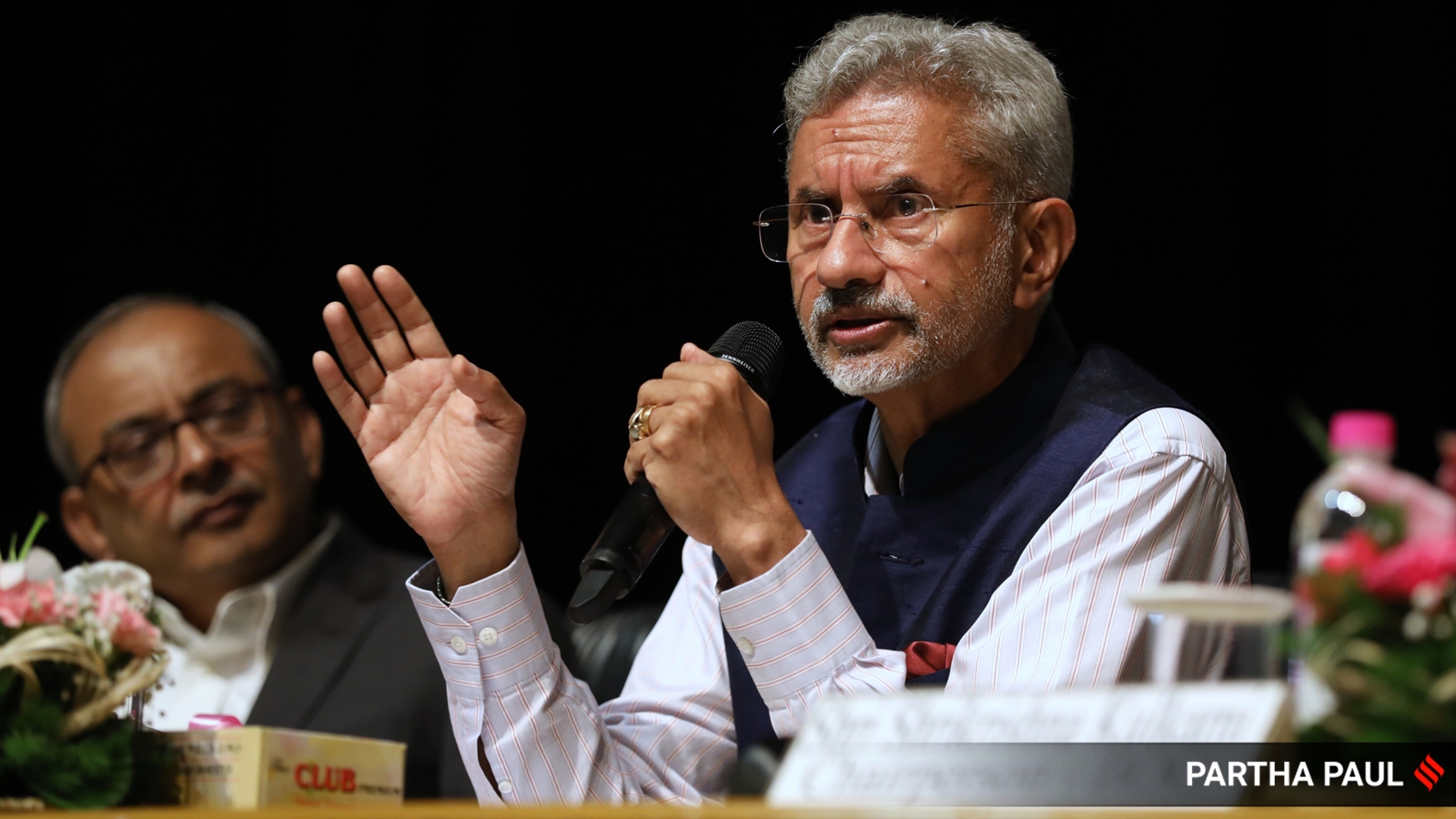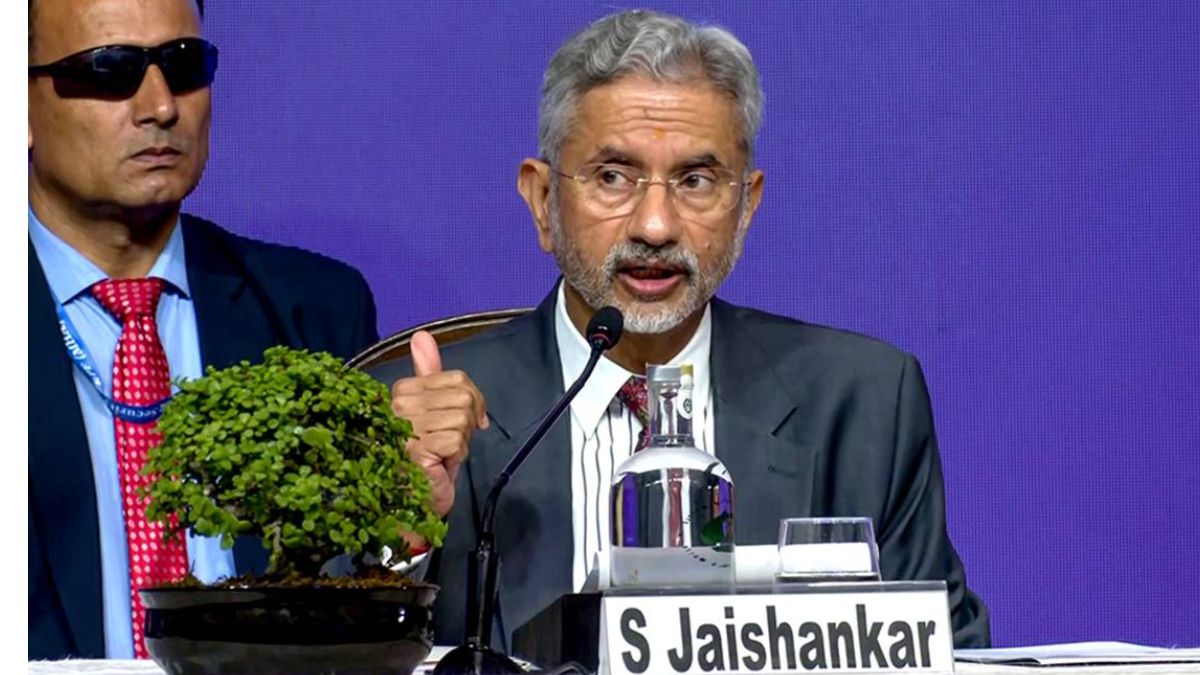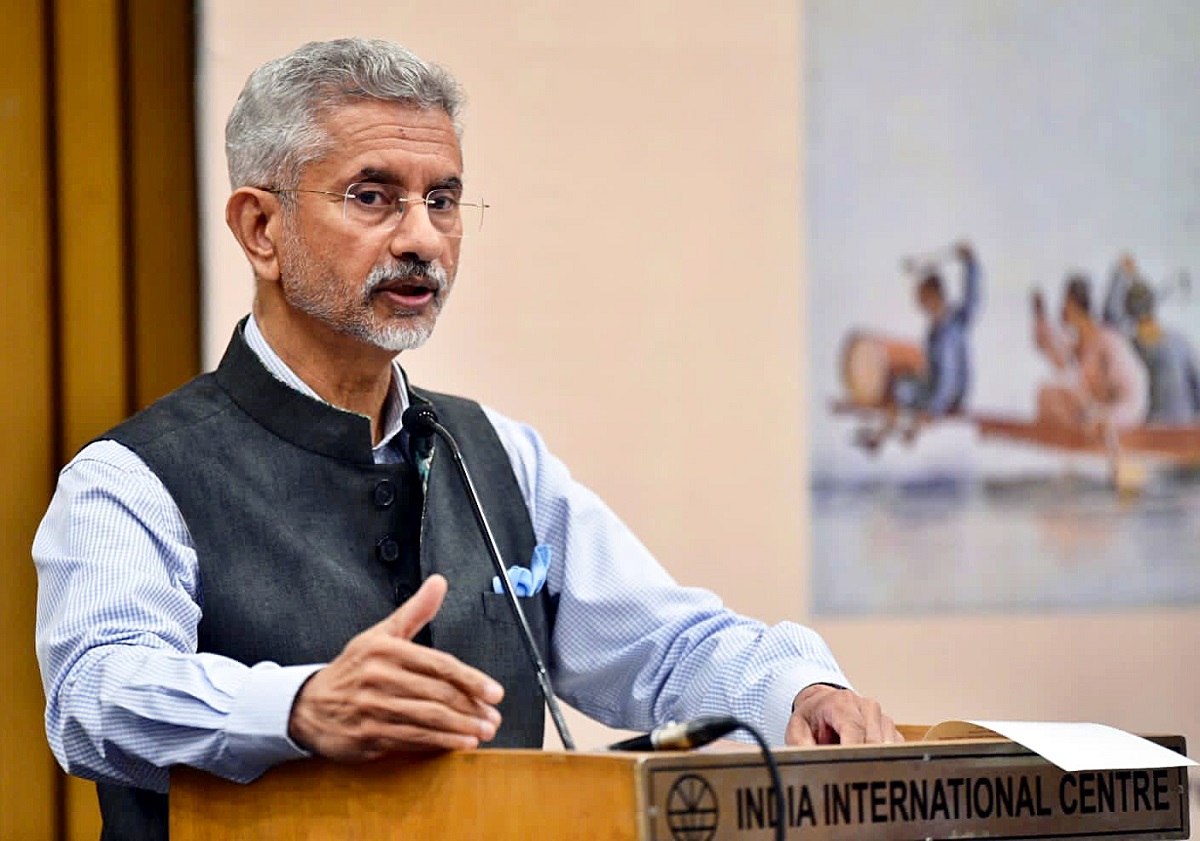Jaishankar says India ‘will continue to make all efforts to.. release’ Indians detained in Qatar

Jaishankar says India ‘will continue to make all efforts to.. release’ Indians detained in Qatar
External Affairs Minister S. Jaishankar has announced that he held a meeting with the families of the eight Indian nationals who are currently detained in Qatar. During this meeting, he expressed the Indian government’s commitment to persistently work towards securing the release of these individuals.
The detention of these eight Indian citizens in Qatar has been a matter of concern and priority for the Indian government. Minister Jaishankar’s direct engagement with the affected families underscores the government’s dedication to resolving this issue promptly and ensuring the welfare of its citizens abroad.
Qatar has been a significant destination for Indian expatriates who seek employment and opportunities. Consequently, the welfare and safety of Indian nationals in the country hold immense importance. The Indian government’s pledge to make every possible effort to secure the release of these detainees reflects its unwavering commitment to safeguarding the rights and interests of its citizens abroad.
The specific details of the detention and the circumstances surrounding it are not provided in the statement, but it is apparent that the government is actively engaged in diplomatic efforts to address the situation. Such diplomatic engagements are vital in resolving issues related to the detention of foreign nationals and ensuring that their rights are upheld in accordance with international law.
The Indian government’s approach to this matter reaffirms its dedication to safeguarding the well-being of Indian expatriates and nationals around the world. Minister Jaishankar’s meeting with the affected families serves as a clear demonstration of the government’s empathy and determination to bring about a favorable resolution to the detention issue in Qatar.
In a post shared on the social media platform X, External Affairs Minister S. Jaishankar emphasized the utmost significance that the Indian Government attaches to the case involving the detention of eight Indian nationals in Qatar. He assured that the government’s unwavering commitment remains steadfast in making relentless efforts to secure their release.
Minister Jaishankar’s statement underscores the gravity of the situation and the dedication of the Indian Government to addressing it. By expressing the government’s highest regard for this case, he conveys the message that the welfare and safety of Indian citizens abroad are of paramount importance.
Furthermore, his assurance that the government will persistently work towards securing the release of the detained individuals reflects the proactive diplomatic efforts and negotiations that are underway. Such commitments are essential in reassuring the families of those affected and the broader Indian community that every possible avenue is being explored to resolve the issue.
In cases involving the detention of Indian nationals overseas, the Indian Government typically engages in diplomatic dialogue and negotiations with the relevant authorities of the host country to ensure the rights and well-being of its citizens are protected in accordance with international norms and laws.
In summary, Minister Jaishankar’s social media post serves as a public declaration of the Indian Government’s deep concern for the detained Indian nationals in Qatar and its determination to pursue all avenues to secure their release. It also conveys a message of reassurance to the families of those affected that their loved ones’ welfare remains a top priority for the government.
During a Town Hall event in Bhopal on October 28, External Affairs Minister S. Jaishankar emphasized the importance of a responsible and effective government that prioritizes its citizens’ well-being. He stated that a good government and strong governance should always work in the best interests of its people. Furthermore, Jaishankar highlighted that just as good governance is essential within a nation’s borders, making sound and principled decisions in international affairs is equally crucial.
The minister’s remarks suggest that a responsible government should uphold the welfare and interests of its citizens not only domestically but also on the global stage. In this context, Jaishankar noted that the Indian government takes a firm stance against terrorism because India has been significantly affected by terrorist activities. This statement underscores the government’s commitment to addressing security concerns, including terrorism, both domestically and internationally. 
Jaishankar’s comments highlight the government’s role in safeguarding the security and well-being of its citizens, as well as its proactive approach in addressing global issues such as terrorism. It reflects the idea that good governance extends beyond national borders and involves making informed and principled decisions on the international stage that promote the country’s interests and values while also contributing to global stability and security.
External Affairs Minister S. Jaishankar’s statement, “We will have no credibility if we say that when terrorism impacts us, it’s very serious; when it happens to somebody else, it’s not serious. We need to have a consistent position,” underscores the importance of maintaining a consistent and principled stance against terrorism, regardless of where and whom it affects.
In this context, Jaishankar is highlighting the need for a coherent and unwavering approach to terrorism. He argues that credibility is at stake if a nation’s response to terrorism varies depending on whether it directly impacts them or not. Inconsistent responses could undermine trust and cooperation with other countries and international organizations in the fight against terrorism.
Jaishankar’s statement reflects India’s commitment to combating terrorism not only because it has been a victim but also as part of its broader international responsibilities. It suggests that India recognizes the interconnectedness of global security and the importance of maintaining a consistent and principled position on terrorism as a responsible member of the international community.
Consistency in the approach to terrorism is vital for fostering cooperation and building trust with other nations in addressing this global threat effectively. It also aligns with the broader principles of international diplomacy, where nations are expected to uphold their commitments and principles consistently to maintain credibility and influence in international affairs.
In the context of the United Nations (UN) resolution, New Delhi abstained from voting on the Jordanian resolution, which called for a “humanitarian truce” between Israeli forces and Hamas in Gaza. This abstention indicated India’s decision not to support or oppose the resolution.
However, India favored the Canadian resolution, which condemned the terrorist attacks by Hamas. This choice aligned India with the resolution’s position on condemning Hamas’ actions.
It’s important to note that these decisions reflect India’s stance on these specific UN resolutions and do not necessarily imply an overall judgment on the status of Hamas as a terrorist organization.
During the emergency special session of the United Nations General Assembly (UNGA) addressing the Israel-Palestine crisis, a draft resolution led by Jordan received approval with 120 votes in favor. However, 14 countries voted against it, and 45, including India, abstained from voting. This resolution called for an “immediate, durable, and sustained humanitarian truce” between Israeli forces and Hamas in Gaza. It also emphasized the need for the “continuous, sufficient, and unhindered” delivery of life-saving aid and services to civilians in Gaza.
India’s decision to abstain from voting on the Jordanian resolution and its support for the Canadian resolution condemning Hamas’ terrorist attacks reflects its nuanced approach to the Israel-Palestine conflict and its emphasis on maintaining a balanced stance. 
External Affairs Minister S. Jaishankar, speaking in Bhopal, emphasized the transformation of India’s global image in recent decades. He highlighted the role of a strong and effective government, stating that “A strong government and good government are two sides of one coin.” Jaishankar pointed to India’s contributions to the world, such as the “Made in India” initiative and the development of vaccines, including the “Invent in India” vaccine program. He also mentioned the successful implementation of the CoWIN platform for COVID-19 vaccination.
These remarks reflect India’s pride in its achievements on the global stage, including its contributions to public health and technology during the COVID-19 pandemic. They underscore India’s commitment to being a responsible global player and its recognition of the importance of both strong governance and global engagement in shaping its international image and influence.




